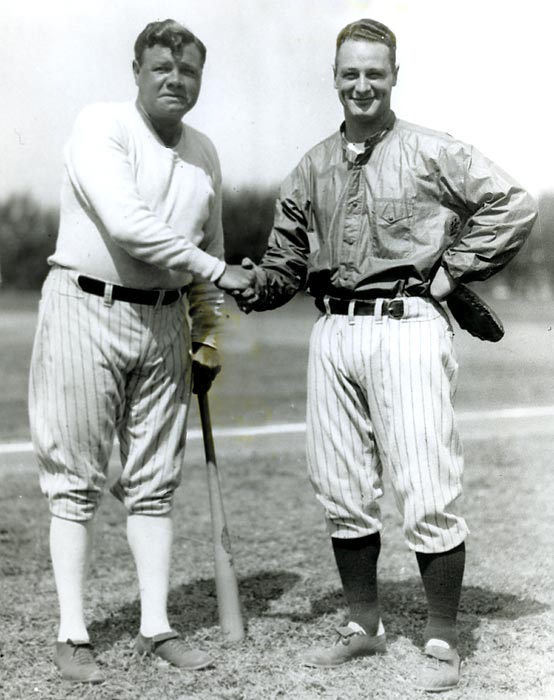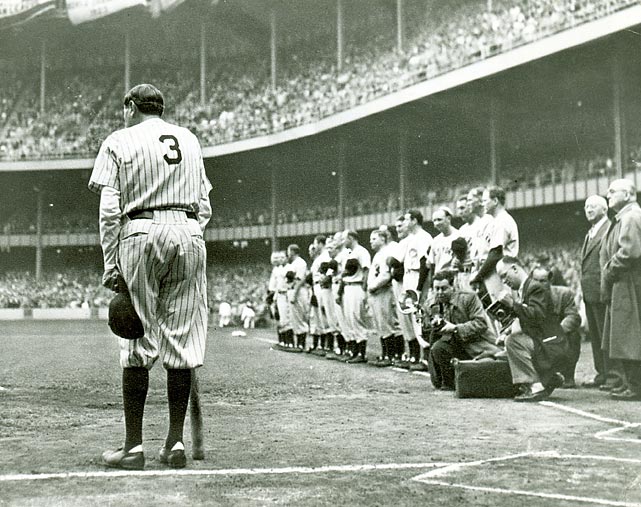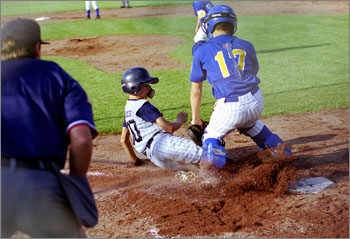Umpire's Information Page
The Heart of Umpiring at the Amateur Level
THERE IS ALWAYS ROOM FOR IMPROVEMENT
Use the off-season to help yourself improve as an umpire. One great way is to review as many tips as possible from fellow umpires, the web and other sources. Here are some helpful tips to improve your game.
Helpful Hints To Become A Superior Umpire
· Umpires must be:
o Neatly dressed
o Prompt and on time
o Approachable
o Well educated in the rules (knowledge of the rules is important, but more important, is the understanding of their purpose, and the ability to interpret and enforce these principles)
o Clear in making calls
o Poised, in control and in charge on the diamond
o Consistent o Able to display good judgment and make accurate calls o Able to explain and clarify the rules and rule interpretations
o Confident
o Prepared
o Flexible
o Hustling all the time
o Decisive
o Able to display rapport
o Unbiased and objective
o Able to make the tough call
o Enforce the rules in an unbiased fashion
o Respectful to the sport and its participants
-Your uniform speaks volumes about you. If your shoes are shined, your shirt is crisp, you have your belt, and you are well groomed, you will immediately be accepted as a professional.The managers,coaches, players and fans will respect you from the time you step on to the field. If your shoes are scuffed and worn, your shirt is faded and wrinkled, you didn’t bother with a belt or a shave, you could be the most knowledgeable umpire in the sport of softball, but no one will believe it. Every close call will be questioned. It will be assumed that your mechanics, like your uniform, are sloppy. Make sure the way you dress when you step onto that field says that you are a professional umpire and that your game that day will be professional too.
-Learn from your peers – good and bad. The things you learn from your peers you will never find in a rulebook. One aspect of the game that veterans can teach you best is game management. Game management is simply the skill of keeping the game moving, anticipating problems, and handling those problems as they arise. It is often helpful to ask your peers for a critique after the game. It may sting a little, but it will benefit you in the long run. On the other hand, some things you learn from others aren’t always the things that you want to repeat, such as sloppy mechanics, poor attitude and lousy appearance. Don’t let this get to you. All you can do in this instance is support your partner and do the best job you can with what you have. For everything you learn from a fellow umpire, you will probably learn one thing that you should not do.
When we talk about professionalism, we take about a confidence and knowledge that should be carried by all umpires.This confidence isn’t arrogance; it is a confidence in knowing that when you walk onto that field, you are there to do a job as defined by your rulebook and to enforce your rules as defined bycommon sense and the interpretation ofthose rules.As an umpire, you have one of the least forgiving, least understood and most underappreciated jobs in theworld.You must be prepared before you walk onto that field for anything to happen, and expect that anything to happen on every pitch.
- You should be physically fit at the start of the season and keep yourself in condition.
- There are no excuses when you miss a play due to lack of hustle. If you and your partner both hustle, the players will do likewise and the game will be administered in a professional manner.
- It is a must for you to be decisive on close calls—be patient—let the play happen before you make the call. This will help your judgment, and good judgment is a must in order to be a respected umpire.
- One of the quickest ways to get into trouble is to be an inconsistent umpire. True, different umpires vary in their strike zones, and different umpires have a tendency to call more balks or see obstruction and interference plays differently.It is important once you start working, especially behind the plate, that you treat each pitch as if it was the deciding pitch of the game. Establish consistency of the strike zone so both the batter and pitcher know what to expect. If you miss a pitch or a play—forget it—know why you missed it and put it out of your mind. This is a must so it doesn’t affect your next call. Remember, you can never even up a missed pitch or call or you will have two mistakes, plus quickly lose respect.
- Correct positioning is in the simplest terms, angle and distance. Understand that having a proper angle is more important than being five feet from the play. Most umpires use two-man mechanics and it isn’t always possible to be standing directly behind the bag to make every call. Know where you need to be, get a good angle, see the play, and make the call.
- Proper mechanics allow you as an umpire to correctly communicate with your partner, and to allow yourself as an umpire to be in the best possible position to see the play.
- Always stay focused on the game. If you want to count the spectators or admire the scenery, do it between innings. Your lack of focus is noticed, and sooner or later you will get a late start or miss a play.
- Umpires are an important part of the game, but not bigger than the game. No one comes to the game to see the umpires. Never embarrass or humiliate a player. With the players there is no game. The best compliment an umpire can receive is that no one even knew you were there. You don’t need to be told when you’ve done a good job. You will know it.
- All of the fundamentals of umpiring cannot be discussed and understood in a short time, but they can be mastered if you stay with them until they are firmly set in your mind.
- Adopt a style of umpiring that suits your personality. Develop techniques that are decisive, appealing and efficient.
- Umpire as many games as you possibly can. Don’t be afraid or too proud to work practice games.
Above all, make each umpiring situation a learning experience.
- Be honest. We all miss them once in a while.
- Work hard every pitch of the game. It means something to somebody.
- Cooperate with your peers, don’t compete.
- Strive to get better. We still have not called the perfect game.
- Umpire because it’s fun and because you love the game.
- Post Game Critique
Since in most cases you do not have a supervisor watching you work your games, it is important you and your partner have a post game critique to help each other improve your umpiring skills. Always be honest with your partner and make sure he knows you want the truth from him. Learn from each other.
















 24.14°C
24.14°C